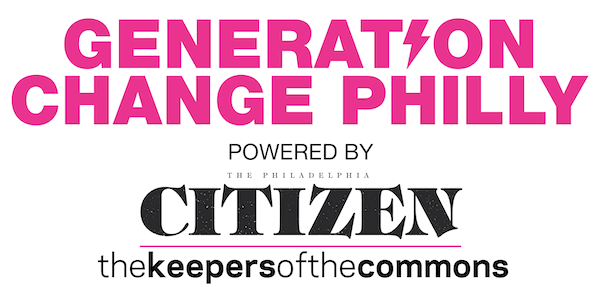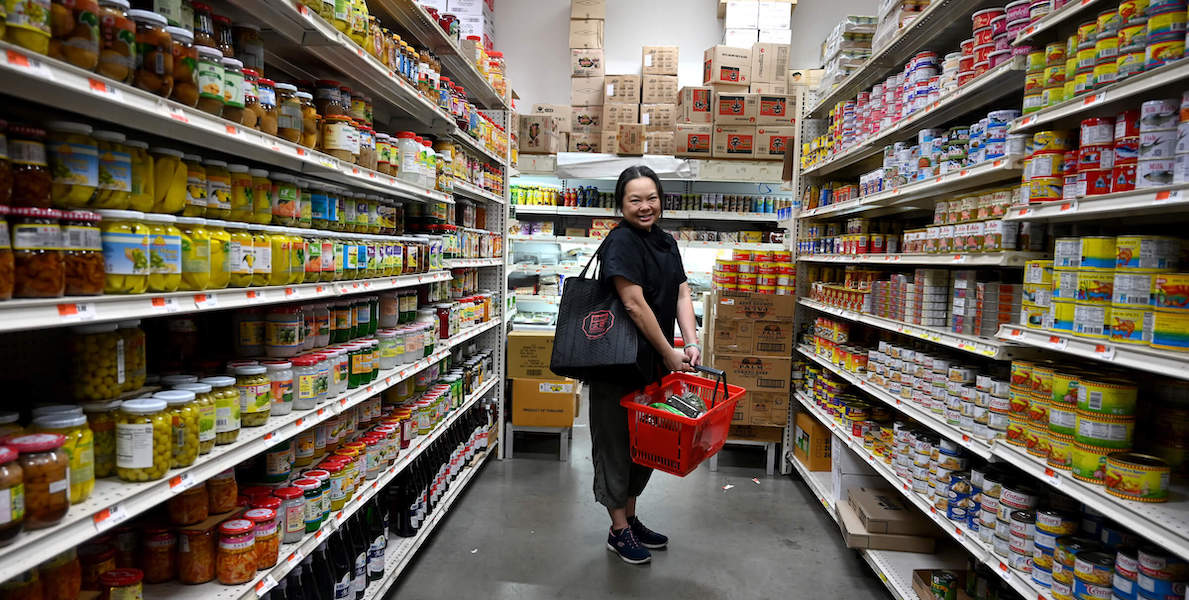In 2016, Ange Branca opened Saté Kampar on East Passyunk Avenue. The Malaysian BYOB quickly became a neighborhood favorite and received a James Beard “best new restaurant” nomination — before being crushed by high rent and the pandemic in spring 2020.
In early 2021, Branca pivoted. She opened a chef incubator in the Bok building that hosted young chefs making to-go meals once a week. Branca also advised her chefs on the business side of the restaurant business. Kampar Kitchen was a success: Not only did they regularly sell out, but several of the chefs she mentored launched their own brick-and-mortars. The most notable is Jacob Trinh of Càphê Roasters, who translated his very personal interpretation of Vietnamese food into one of the best coffee shop menus in the city.
At the end of the summer in 2021, Branca left Bok. She had bigger plans. She wanted to own and control her own space. She wanted to turn Kampar Kitchen into an equitable model for what the Philly food scene could be. That reimagining of the Philly food scene is why we named Branca to Generation Change Philly, a partnership with the nonprofit Keepers of the Commons to provide educational and networking opportunities to the city’s most dynamic change-makers.
How Branca plans to accomplish her goals:
After having to close Saté Kampar, you had other options. Why did you stay in the restaurant industry?
During the pandemic, someone told me, “Oh, you know, you have a good brand, you should just make pizza, and you would make money.” But is that why I’m in the industry? No. For a lot of people who are immigrants, it’s about sharing our culture, the foods we eat on a daily basis. As we all become Americanized, food and culture become significant for us to hold on to, to appreciate and demonstrate worth.
When I started Saté Kampar, no one really knew what Malaysian food was or much about the specificities of “Asian” cuisine. We slowly brought it into the spotlight over the five years that the restaurant was open.
The challenge with underrepresented food is how much time it takes to make the food more known. It can take a long time to get attention or to change the way people think about where to go to dinner.
What’s your take on the current restaurant scene in Philly?
By 2019, prior to the pandemic, the scene was on an upswing. We were setting a high bar of being a city with a very diverse food scene.
I look around now, and I just feel like it’s kind of gone. We have ways to come back.
What makes opening a restaurant serving “new” foods difficult?
I’m a numbers person, you know? So let’s use the example of pizza. If you go anywhere in the city, and you’re going to open a pizza place, you know how much you’ll sell right away because there are already customers for it. Anywhere you go, if you say OK, 2,000 people live in this square mile and you’re the only pizza shop. They’re already customers, because pizza is a known staple.
But if you’re making a food like saté, those numbers don’t work anymore. It’s all about how you can draw the customers. How do you bridge the gap? How do you convince people to try it?
At Saté Kampar we introduced the idea of appreciating flavors across cultures at our Muhibbah Dinner series, group meals where each course was prepare by a different chef, some big names, some less known—that highlighted a meaningful part of their culinary heritage, which they shared while guests ate.
It was a success. That’s how I knew Philly was ready for a concept like Kampar Kitchen.
I want Philly to have good food from all over the world because we have people from all over the world living here.
The first Kampar Kitchen served takeout meals from the Bok building. Will the next one be similar?
My idea comes in part from the way some restaurants called kopitiams operate in Malaysia. A kopitiam has a couple of micro-businesses within the same space. That’s the kind of restaurant I grew up eating in. It’s like a mini food hall, kind of, but it’s actually a restaurant because all of the businesses exist cohesively.
The other part of it was getting to know Caleb [Zigas], the ex-director of La Cocina [a nonprofit culinary incubator in San Francisco that cultivates low-income food entrepreneurs]. I’ve been talking about it with him for four or five years.
How will Kampar Kitchen make it easier for the chefs you mentor?
There are a lot of barriers to entry when you’re opening a restaurant, and rent is one of the main ones. The chefs in Kampar Kitchen don’t pay rent, they pay a percentage of sales, which means we’re all in it together.
It’s also access to knowledge and expertise, like, how do you start a business? How do you get insurance? How do you protect yourself? How do you create a company? And access to publicity. Ever wonder why some people get written up and talked about all the time and others who work just as hard making great food don’t get a mention? The reality is … it is unequal and it is unfair. We can’t change that. But what we can do is to shine a spotlight and try to level the playing field and hope that every chef takes the opportunity to grow from there.
The challenge with underrepresented food is how much time it takes . . . It can take a long time to change the way people think about where to go to dinner.
How do you plan to make Kampar Kitchen sustainable for the long term?
I’m really focused on getting a new space. I’ve had bad luck with landlords, and I need more control over my space going forward. This type of work that I’m doing, it doesn’t make sense for me to sign a five-year contract. Every restaurant should have more ownership over their space, because it’s not sustainable to put up so much money to build a restaurant and sign a five-year contract, and then, after that, it’s up to what the landlord wants.
The investment to start a restaurant is our life savings for most small business owners. It doesn’t make sense to put it into someone else’s property. That is my biggest lesson learned.
What’s your dream for Kampar Kitchen 10 years down the road?
First of all, I want a permanent space. Then, I hope that as the chefs become more and more popular in the space, that they expand beyond Kampar Kitchen. I want Philly to have good food from all over the world because we have people from all over the world living here.

The Philadelphia Citizen is partnering with the nonprofit Keepers of the Commons on the “Generation Change Philly” series to provide educational and networking opportunities to the city’s most dynamic change-makers.
![]() RELATED
RELATED




